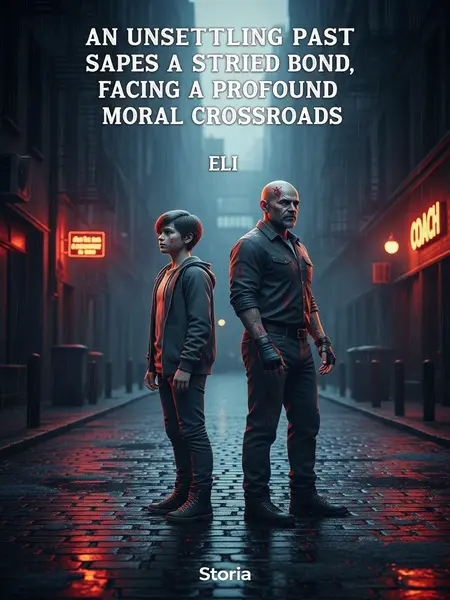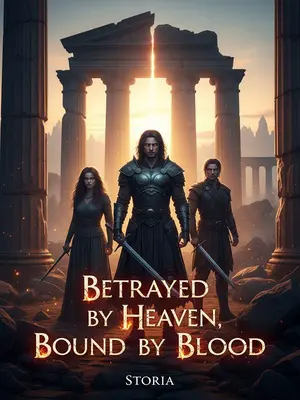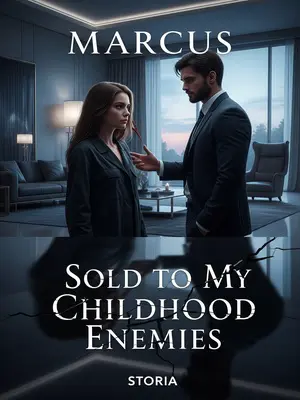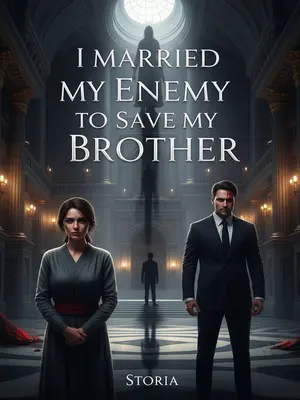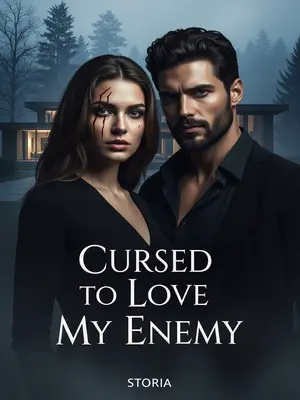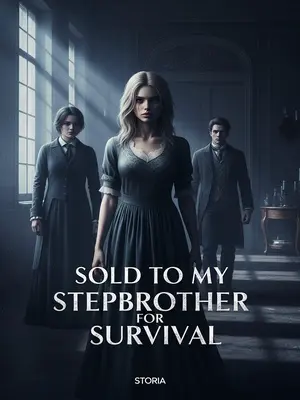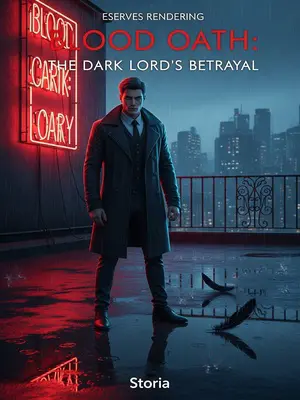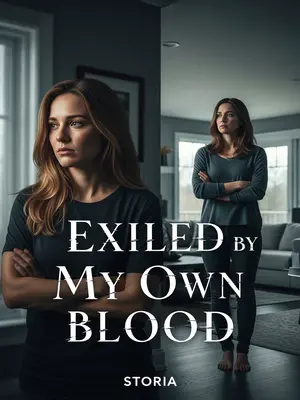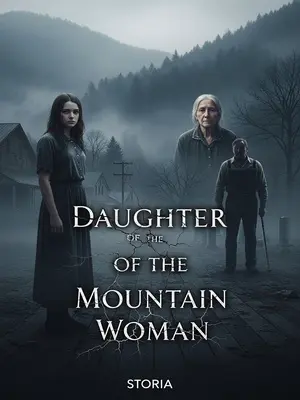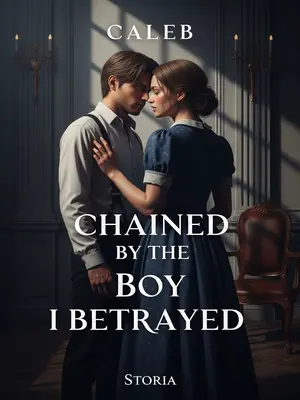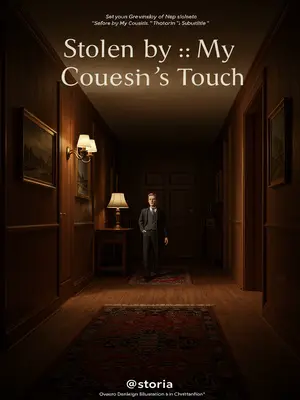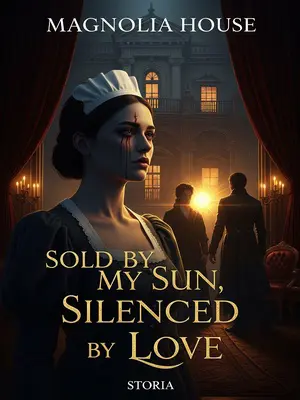Chapter 1: The Boy Who Refused Revenge
After I raised my sword and cut off my enemy’s head, I was about to leave when I turned to the enemy’s son. “Remember my face,” I told him, my voice rough. “When you’re grown, come find me. Make me pay.”
My words echoed through that dim, blood-splattered room, the stench of iron hanging in the air, thick as storm clouds. The kid just stared at me, his eyes wide, face pale under streaks of blood and tears. I expected rage, maybe a scream. Instead, he just reached out, grabbing the hem of my battered old coat in a desperate grip, knuckles white.
But the kid clung to my coat and begged me—voice shaking—to take him on as my apprentice.
His voice was shaky, but stubborn. “Please, take me with you. Teach me.” There was no hate in his eyes, just raw pain and something else—hope, maybe, or just the last scraps of it. I could feel the weight of that moment settle on my shoulders, heavy as a threat, heavier than the sword I carried. I didn’t look back. Didn’t need to.
I just stood there, stunned. “You really think learning from me’ll make it easier to kill me someday?”
The words slipped out before I could stop them, half a joke, half a dare. I’d seen plenty of kids swear vengeance, but never one who wanted to follow the killer home. I waited for a flicker of anger. Nothing. He just shook his head, lips trembling.
He shook his head. “Because… I don’t want to kill you.”
His voice was quiet, but steady. There was something honest in it, something that cut through the chaos of the night. For a moment, I didn’t know what to say. The world had always been simple—hurt or be hurt, take or be taken. But this kid, standing in the ruins of his old life, wanted something different. Like he’d already decided, no going back.
So I did. For ten years, I taught Eli Morales the sword. For ten years, he called me ‘Coach.’
Every morning, rain or shine, he’d be up before dawn, waiting for me on the porch with that battered wooden sword I gave him. He never missed a lesson, never complained—just called me Coach, like I was the only anchor he had left. The title stuck, and after a while, I started to answer to it without thinking.
It was a night I’d relived a thousand times in my mind. The creak of the floorboards, the cold glint of steel, the look in his parents’ eyes before it all went dark. I’d told him to remember me, to come for my head when he was strong enough. It was the code of the underground, the way we settled debts. But every time I remembered it, a cold knot formed in my chest. What kind of monster tells a kid to grow up and come for blood?
The memory comes back in flashes—his face streaked with tears, the grip on my coat, the way his voice trembled but didn’t break. The smell of blood, the silence after the screaming stopped—every detail sharp as broken glass. I can still hear the echo of my own words, bouncing around in my head, never letting me forget.
I was honestly baffled. “Why?”
I’d seen people beg for their lives, beg for mercy, beg for revenge. But never this. I stared at him, waiting for the catch.
“An eye for an eye—when does it stop? The hate between you ended with your sword. I shouldn’t keep it going. If we do this forever, the world just stays full of blood and chaos.” He stammered a bit, voice cracking, but kept going, like he had to get it out before he lost his nerve.
His words settled between us, heavy as lead. Even with his voice cracking, his meaning was sharp as a blade. He sounded older than his years, and for a second, I felt the weight of every old grudge I’d ever carried.
Sobbing his heart out. But dead serious.
The whole room seemed to pause around us—broken furniture, blood on the floor, the ghosts of old violence. I saw something in him that made me wonder if maybe, just maybe, things could be different. But I kept my face hard, unwilling to let him see the cracks. The way things work isn’t up to you, kid. Not in this world.
But I said, “If you don’t want revenge, fine. But why do you want to be my apprentice, then? Seriously.”
I watched his face closely, looking for a lie, some hidden agenda. But all I saw was grief, confusion, and a stubborn kind of hope.
Eli looked at his parents’ bodies, then closed his eyes, his voice trembling. “Of course I’m hurting. I’m angry. Even if I know I shouldn’t go after you, I... I can’t help it. But if I become your apprentice—after years with you—I won’t want to kill you anymore.”
He spoke the words like a confession, laying his soul bare. His speech was halting, raw, and he struggled, torn between what he felt and what he wanted to be. There was a strange kind of honesty in that, and I respected it, even if I didn’t understand it.
“…That’s a new one,” I admitted.
I couldn’t help but let out a short, bitter laugh. In all my years, nobody had ever come up with that angle before. It was so earnest, so unexpected, that it knocked the wind right out of me.
So, in a moment of madness, I agreed. Guess I lost my mind. I took him up to my cabin in the Smoky Mountains and taught him everything I knew about the sword.
Maybe I just didn’t want to be alone. Maybe I saw something in him I couldn’t admit. Either way, I packed up his things, drove him out of town, and brought him to my place—an old log cabin halfway up a mountain, where the fog rolls in thick every morning and the world feels far away.
Me? I’m the inheritor of Cloudridge Sword, one of the thirty-seven legendary fencing schools in the Northeast. Not that most folks know what that means anymore—these days, it’s more urban legend than reality. But in the underground, it still matters. For this kid, having me as a coach was a stroke of luck.
The old fencing circuit was mostly gone—just stories now, whispered about in late-night bars or old gym basements. But I kept the tradition alive, teaching him the forms, the footwork, the discipline. Sometimes, I’d catch him staring at the mountains, like he was looking for something he’d lost, or maybe something he hoped to find.
The name Jude Carter means something in every back alley, every underground ring, from Boston to Buffalo. I always figured that was enough.
Every year on the anniversary, I’d pour us both a drink—him milk, me bourbon—and ask, "You ready to settle the score yet?" He’d just smile, shake his head, and go back to practicing. He never forgot, but he never let it eat him alive, either.
I always thought revenge was just natural. That’s just how it is. Where there are people, there are grudges.
In my world, every handshake came with a knife behind the back. I tried to teach him that, but he never quite bought it. Sometimes I wondered if he was the fool—or if I was.
Life in the scene is about settling scores with blood. You fight, you get even. If it never ends, you just keep fighting—until, eventually, someone puts you down.
It’s a cycle older than the hills—one I’d seen play out a hundred times. But Eli, stubborn as he was, refused to play by those rules. He made me question them, even when I didn’t want to.
But Eli thinks killing is a terrible, unforgivable thing. He believes people should find a way to get along, somehow.
